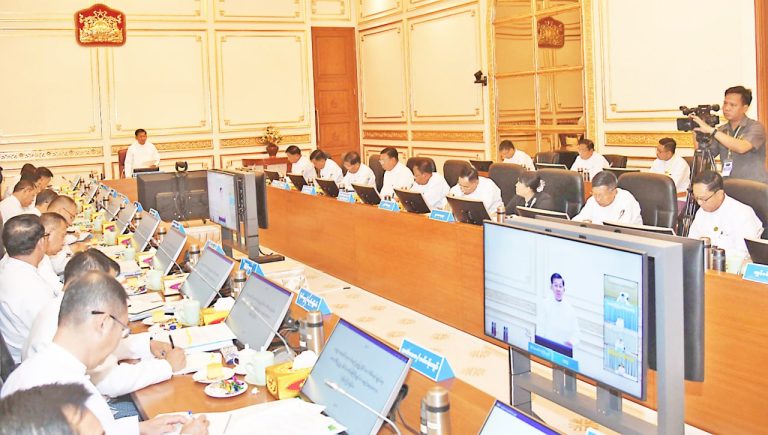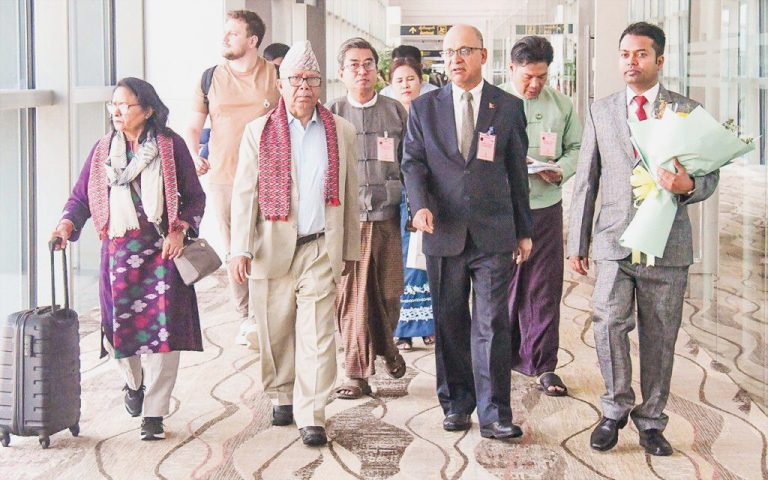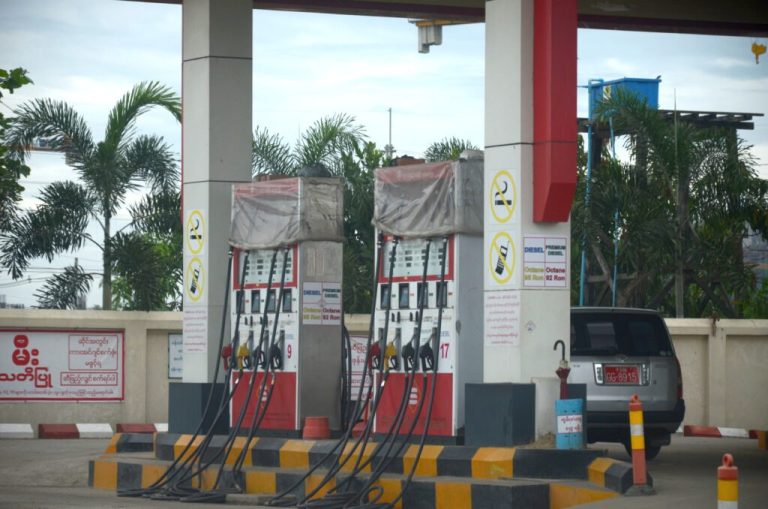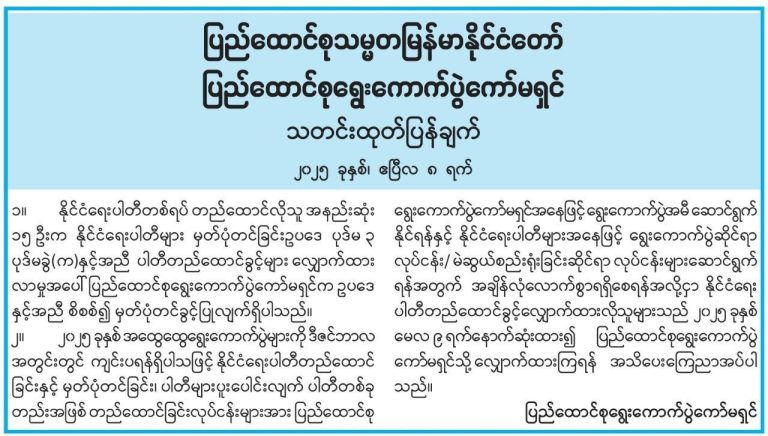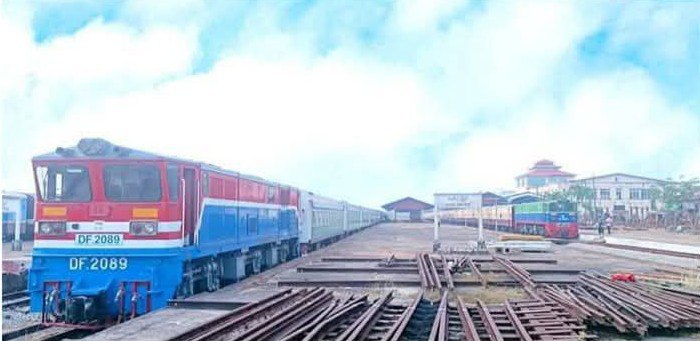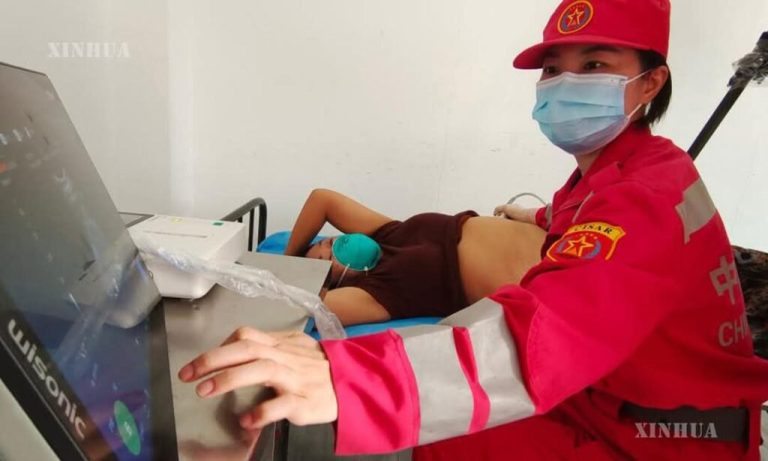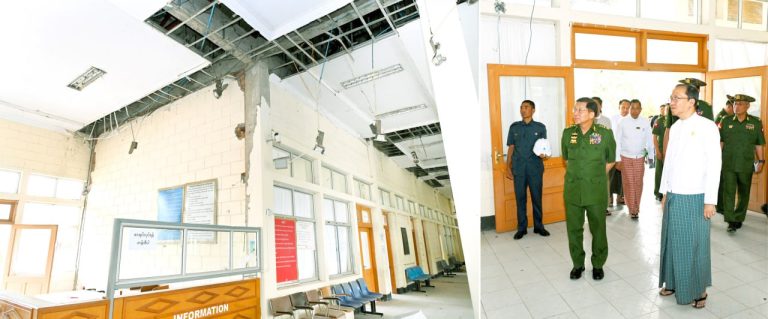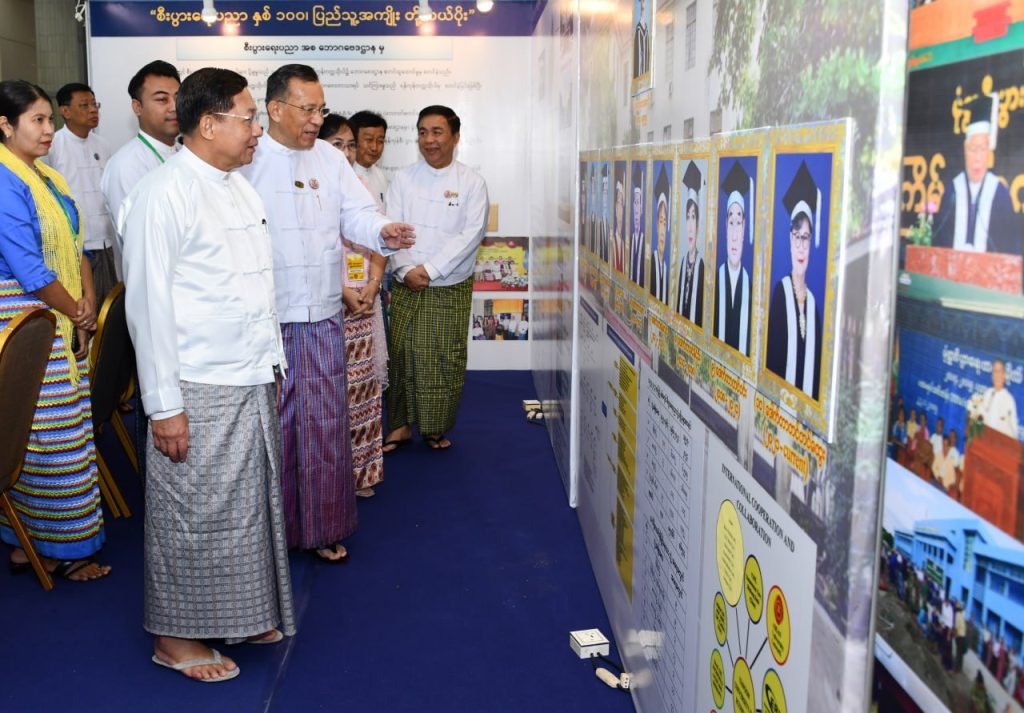
29 November 2024
A ceremony to mark the Centennial Anniversary of Economics Education in Myanmar was held at MICC II here this morning, addressed by Chairman of State Administration Council Prime Minister Senior General Min Aung Hlaing.
Also present were Joint SAC Secretary General Ye Win Oo, SAC members, union ministers and union level officials, the Nay Pyi Taw Council chair, senior military officers from the Office of the Commander-in-Chief, the Nay Pyi Taw Command commander, deputy ministers, economics degree holders, members of steering committee and subcommittees to hold the Centennial Anniversary of Myanmar Economics Education, representatives of economy-related ministries, representatives of economics-related associations, Union of Myanmar Federation of Chambers of Commerce and Industry and affiliated associations, senior faculty members, students and alumni of universities of economics and universities related with economics, resource persons and officials.
When the ceremony began, the Senior General and attendees watched a video clip on the ceremony. In his address, the Senior General said today marks the centenary of the opportunity to learn economics for progress of national economy and socioeconomic life of the people throughout the successive eras and the years afterwards during which the knowledge of economics had supported the country. Hence, this year is significant for economic knowledge.
Since the establishment of the economics department in Yangon University in 1924, the subject has been taught in the country.
Indeed, it is an honourable day for all the teachers, economics graduates, students learning the subject, and the persons who are serving national interest with the economic knowledge in the government and private sectors during the period of 100 years. It’s also a pleasure and honour for the nation.
A look back at the economics education 100-year journey shows that throughout the successive periods from the colonial times till the administration of SAC, sector, we urge a commitment to three core principles: increasing yields by surpassing established targets enhancing yield potential, and expanding the cultivation area.
Approximately 90 percent of the country’s GDP is generated by the private sector, and 95 percent of businesses are small, micro, and medium-sized enterprises (MSMEs). To boost exports and reduce reliance on imports, it is crucial to foster collaboration between private sector development and the growth of MSMEs, with a particular focus on agro-based industries. Supporting services are being provided to promote the development of MSME businesses.
It is also essential to disseminate business ideas that support business development, ranging from digital literacy and accounting to financial management, innovation, product development, marketing, and branding. As the saying goes, “The only true strength of a country lies within the country,” we must focus on enhancing domestic productivity, improving quality standards, and expanding access to local markets in order to boost the nation’s income. Incentives and rewards should be provided to those who make sincere efforts to strengthen and boost the country’s economy.
Our country, a developing nation with a diverse population of ethnic groups, faces both natural and man-made disasters.
Since gaining independence, development projects have been implemented systematically.
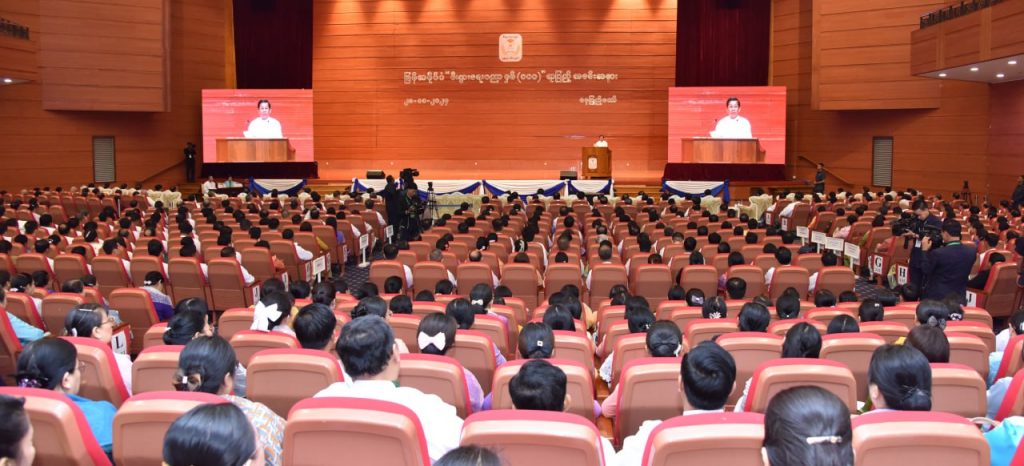
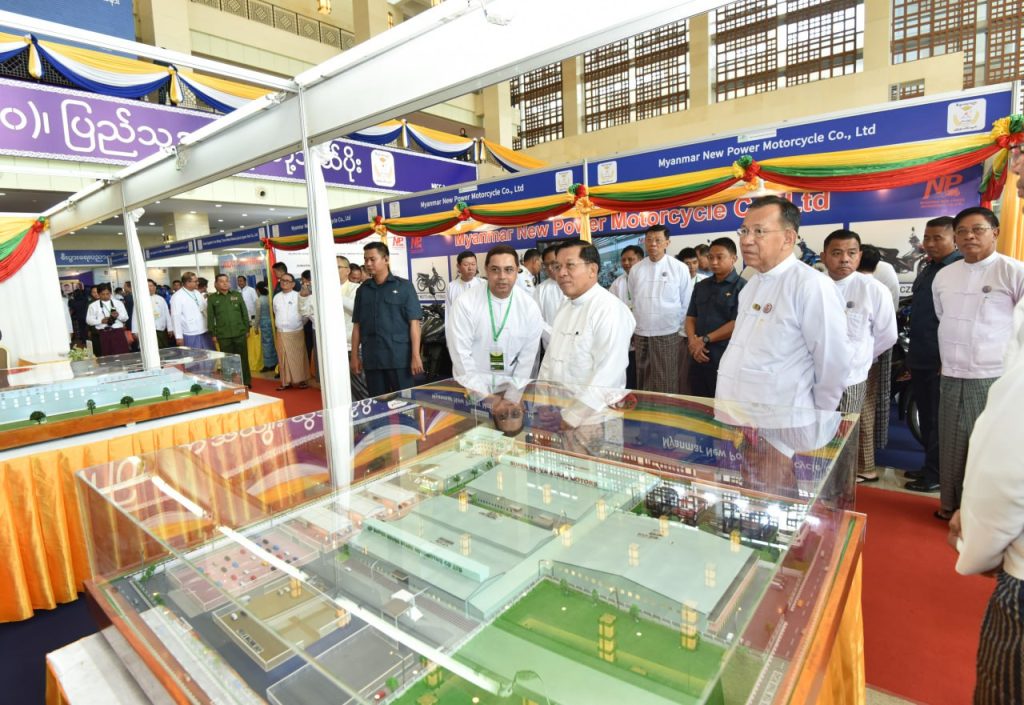
However, due to the ongoing reconstruction of socio-economic infrastructure damaged by natural disasters and other challenges, investments and the efforts of workers have not yet reached their full potential.
At present, reconstruction, relief, rehabilitation, and resilience initiatives are being carried out, which are widely recognized.
It is important to continue implementing preventative measures to strengthen resilience against future natural disasters.
Domestic entrepreneurs have significantly contributed to the financial needs of nationbuilding through their investments.
During the post-Typhoon Yagi recovery efforts, domestic businesspeople actively participated and donated generously, reflecting the concept of a “Caring and Sharing Society.”
It has been observed that countries around the world are preparing and analyzing potential economic challenges they may face in the future. In doing so, they adopt different approaches based on their domestic economic conditions, human resources, natural resources, and financial capacity.
These varying approaches demonstrate that the ability to resolve crises depends on the capabilities of both public and private sectors, resulting in differing outcomes.
Preparing and building capacity is essential not only for the present but also to address potential development opportunities in the future. Therefore, it is urged to develop and implement “macro-economic policies” and a “national economic development strategy” for the country’s future. This process requires the involvement of intellectual expertise in economics.
It is also encouraged to study and address geopolitical and geo-economic challenges through a political economy perspective to collectively work towards the country’s economic development.
Human resources play a critical role in economic development, requiring competencies from foundational levels to leadership positions. Over the decades, prominent economists such as Dr. Hla Myint, Dr. Aye Hlaing, Dr. Maung Shein, and Dr. Than Nyunt have contributed significantly. Myanmar’s various universities have produced 96,696 graduates over the past century, with 19,042 students currently enrolled. Distance education institutions have also produced 170,931 graduates.
In the 2022-2023 academic year, universities in states and regions began offering Bachelor of Economics programs aimed at developing regionally skilled human resources, with 1,786 students currently enrolled. It is emphasized that a strong foundation in economics is essential for improving the country’s economic landscape. The contributions of Myanmar’s leading economists and educators in the field of economics are acknowledged and honored.
In alignment with the motto “A Century of Economics Education: Serving the People”, to develop an economic knowledge base that can be practically applied across various sectors, efforts should focus on producing skilled practitioners capable of applying economic knowledge effectively, ensuring sustainable progress for many years to come for fostering an economic environment led by a new generation of ethical and fair professionals who can enhance not only their own prosperity but also the well-being of their families, businesses, the nation, and its people.
Dr. Than Nyunt, the chairman of the organizing committee, delivered a congratulatory speech, followed by an address by Dr. Kan Zaw, Union Minister for Investment and Foreign Economic Relations, elaborating on the significance of the centenary celebration of economic education.
Subsequently, musical performances honoring the centenary were presented, and attendees, including the Senior General, enjoyed the performances.
Then, the Senior General and the attendees had a group photo taken.
Afterward, the Senior General, and attendees interestingly toured the exhibits commemorating the Centennial Anniversary of Economics Education in Myanmar.

